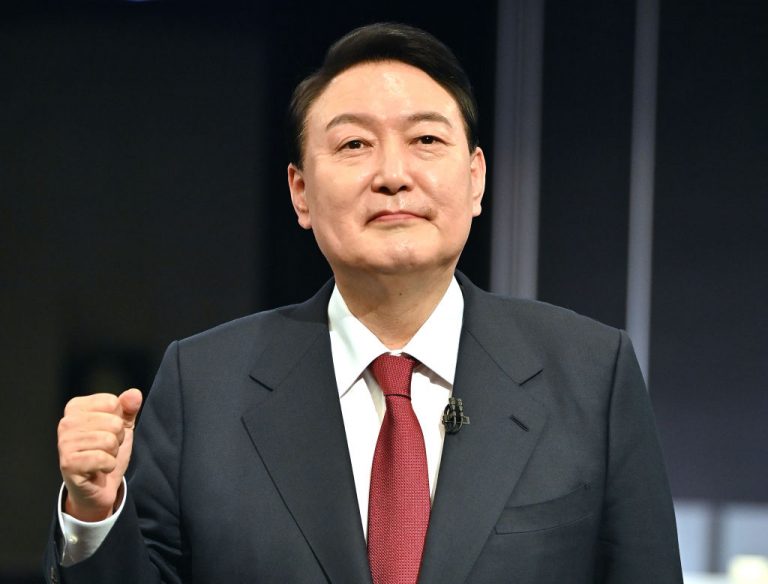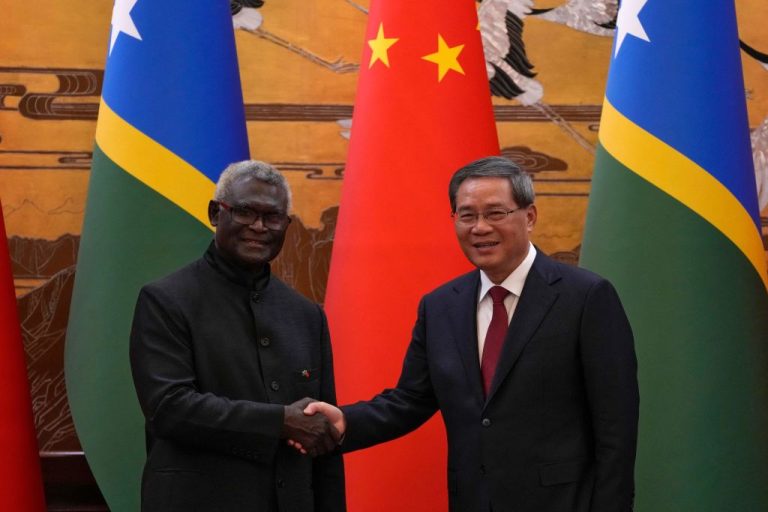In a tight competition for the presidency of South Korea, conservative candidate Yoon Suk-yeol emerged victorious on Thursday, March 10. As the new president-elect, Yoon vows to take a more hawkish stance against North Korea and “reset” relations with China.
A tight race
The Korean Broadcasting Station (KBS) showcased conservative candidate Yoon’s electoral victory against his opponent Lee Jae-myung. As the ballots closed at 5:30 a.m. local time, results showed that Yoon won with 48.6 percent of the vote, edging out Lee, who recorded 47.8 percent.
“I congratulate the president-elect Yoon on his election,” Lee said, accepting his defeat. “I hope the president-elect will get over division and conflicts and open a new era of national unity and harmony.”
Several issues were at the forefront of South Korea’s minds as they hit the polls, including raised home prices, gender politics, household debt, unemployment, and the response to Coronavirus Disease 2019 (COVID-19).
READ MORE:
- Seoul Warns of Crisis as North Korean Missiles Continue to Fly
- North Korea Signals Potential Restart of Missile and Nuclear Tests
- North Korea Tests Hwasong-12 IRBM, Its Most Powerful Missile Since 2017
- Wildfire Threatens Large South Korean Nuclear Plant
While the former president Moon Jae-in avoided any scandals, his party was plagued by various controversies. One of his aides, Cho Kuk, resigned after being marred with accusations of bribery and document fraud, Reuters reported.
Success
You are now signed up for our newsletter
Success
Check your email to complete sign up
Notably, the prosecutor who cited Cho is none other than President-elect himself.
Another highlighted issue was disagreements surrounding North Korea, which continues to demand a lifting of sanctions. Moon was known to have attempted a more peaceful resolution to tensions between the two Koreas, but conflicting views, as well as Pyongyang’s resuming missile tests, put a stop to the efforts.
Recently, Russia’s war on Ukraine has spawned concerns from South Koreans who are fearful of a new Cold War between the U.S. and its allies on one side, and Russia, China and North Korea on the other, Political Science Professor Kim Yong-hyun of Donguk University said.
The new President’s challenges
A graduate from Seoul National University, Yoon rose to become Prosecutor General during Moon’s presidency, playing a role in the sentencing of former conservative presidents Lee Myung-bak and Park Geun-hye in 2018—both were charged with “corruption and power abuse.”
Now, as he ascends to take the presidency, Yoon also vows to look into his predecessor’s “deep-rooted evils,” and take a firmer stance against corruption.
The President-elect had lambasted Moon for leaning more towards North Korea and China, while weakening alliances with the U.S. and its allies. Yoon has since vowed to strengthen ties with Washington in the face of growing North Korean aggression.
Once the President-elect assumes office on May 10, he is expected to immediately face growing concerns about North Korea potentially resuming its weapons testing and the launch of a spy satellite.
As such, Yoon promised to take a firmer stance against the North, saying that he would take “pre-emptive strikes” on the communist government should an attack be imminent, while also seeking out stronger “U.S. extended deterrence,” which alludes to Washington’s military defense of its allies.
However, his plans have been met with more fears by the aforementioned people who are anxious of the continuation of the Korean War (1950-1953).
“Yoon prefers to maintain order through military power on the basis of the alliance with the United States. But this approach is likely to increase instability in the region,” Kim Yong-hyun said.
While China hawks welcomed Yoon’s victory, he nonetheless stated hopes for a “new era of cooperation” with China, promising “mutual respect” and “regular high-level strategic talks” should he be elected.
However, Yoon maintains the need to expand the deployment of the U.S. Terminal High Altitude Area Defense (THAAD) missile system across South Korea—something that the Chinese Communist Party (CCP) is threatened by.
“He is more willing to treat China as a threat,” said research associate Naoko Aoki at the University of Maryland’s Center for International and Security Studies.
Despite Yoon’s victory, he is yet to face a Parliament that is still dominated by the Democratic Party, which holds 60 percent of the seats. Currently, he also faces criticism regarding his “forceful” leadership style in the face of domestic issues.
Yoon has promised that he would provide more than 2.5 million housing units, give financial aid to pandemic-stricken businesses, and raise salaries for conscripted soldiers.
After the results were announced, a spokesperson at the White House said, “We congratulate President-elect Yoon Suk-yeol. The alliance between the United States and the Republic of Korea, our economies and our people is ironclad.”
It is also hoped that Yoon’s presidency would help to resolve tensions between South Korea and Japan, which have been fuelled by historical and territorial disputes since the former’s independence from the latter in 1945.

















